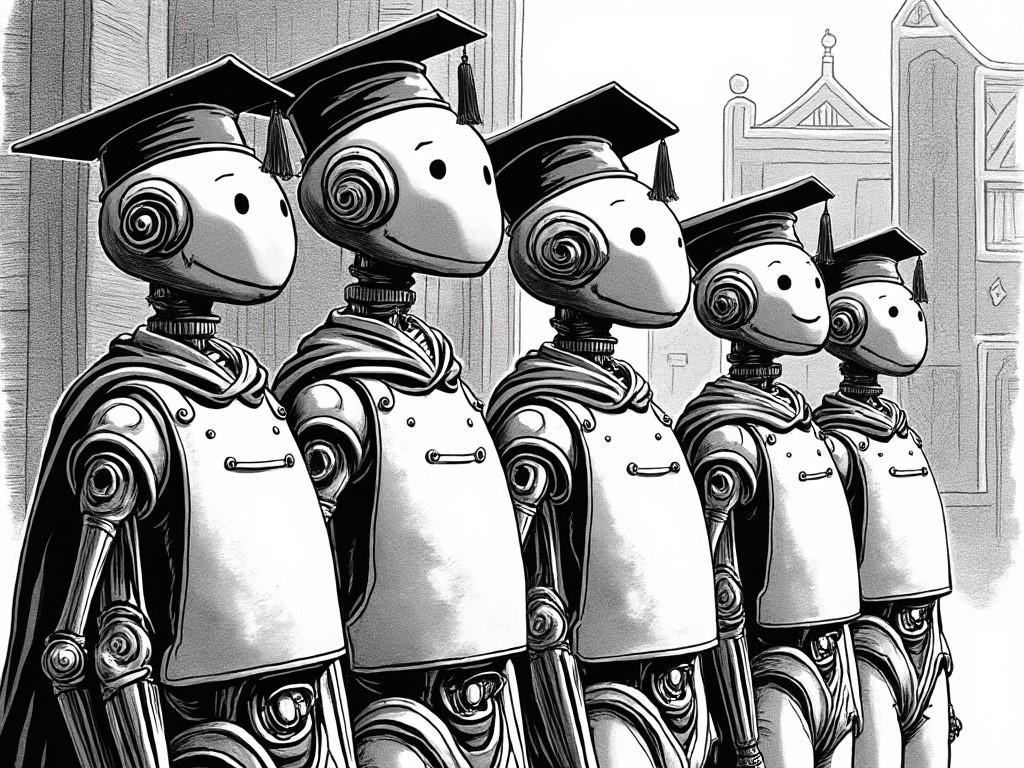AI and the jobs question

General Purpose AI (GPAI) refers to artificial intelligence systems that can perform a wide variety of tasks. GPAI includes Large Language Models (LLMs) such as ChatGPT and Claude, as well as image generators such as Midjourney and Stable Diffusion. With the rise of agentic frameworks, GPAI can now perform workflows with minimal human intervention.
Unlike traditional AI, or “narrow AI” which is designed for specific functions, GPAI is versatile and capable of learning and adapting across domains. This transformative technology is reshaping industries globally, including the Philippines’ backbone sector—outsourcing—and prompting urgent questions about the future of jobs.
As an AI advocate in the Philippines, I view GPAI not as a threat but as an opportunity—one that, if leveraged wisely, could propel our economy into a new era of innovation and growth. Yet the reality is clear: GPAI’s ability to automate tasks like customer service, data entry, and other repetitive functions is poised to redefine the outsourcing industry that has long been a pillar of our economy. The challenge before us is whether we can adapt fast enough to thrive in this new landscape.
In the recent International IT-BPM Summit, IBPAP president Jack Madrid reported that AI has started to disrupt the IT-BPM workforce. It’s a mixed bag: 8% of IBPAP members have reported headcount reductions due to AI, while 13% reported headcount gains. Twenty-four percent and 26% of members have reported a shift in job roles and require significant upskilling respectively.
In all cases, in order to meet this challenge, we must reimagine the role of human talent in an AI-driven world. This begins with addressing our education and training systems. Traditional education models, with their rigid structures and long update cycles, cannot keep pace with GPAI’s rapid evolution. What we need instead are agile, lifelong learning systems that teach not just technical skills but also the critical thinking, creativity, and emotional intelligence that AI cannot replicate.
Unfortunately, our current efforts to upskill the workforce fall short of what’s needed. Many retraining programs are too narrow in scope, focusing on immediate needs rather than equipping workers with the adaptability required for long-term career growth. Addressing this requires collaboration between the government, the private sector, and educational institutions to create programs that evolve alongside technological advancements.
Access to these programs is another concern. In urban centers, where resources and funding are more abundant, AI-enhanced education is within reach. But in rural areas, where opportunities are limited, the digital divide is growing. Without targeted interventions to ensure equitable access to AI tools and training, the adoption of GPAI risks exacerbating inequalities, leaving millions of Filipinos behind.
We also need to rethink the way we credential skills. Employers are increasingly prioritizing micro-credentials and AI-validated certifications over traditional degrees. The recently launched Philippine Skills Framework (PSF) indicates how IT-BPM companies define their skills requirements, egging our academia to respond with more industry-aligned courses.
While this shift creates opportunities for workers to demonstrate expertise in new ways, it also risks disadvantaging those who lack access to these alternative pathways. To keep up, our credentialing systems must remain inclusive and aligned with the needs of a rapidly changing labor market.
Policy will be critical in shaping the future of AI-driven work. Our policymakers must act swiftly to develop frameworks that both protect workers and foster innovation. This means investing in displaced workers, incentivizing responsible AI adoption, and ensuring that regulations keep pace with technological advancements. The government must play a proactive role, balancing the need for economic stability with the immense potential for growth that GPAI offers.
Sovereign AI —locally developed and controlled AI tailored to national needs—is another avenue the Philippines must explore. By investing in sovereign AI, we can create systems that strengthen our industries, protect our data privacy, and reduce dependence on foreign technologies. This could position the Philippines not just as a participant but as a leader in regional AI innovation.
Ultimately, the impact of GPAI on our economy depends on the choices we make today. Will automation erode livelihoods, or will it usher in a future of shared prosperity? I believe the Philippines has the potential to seize this moment, but it will require bold action and collaboration across all sectors of society.
The jobs question isn’t whether AI will reshape the workforce—it already is. The question is how we respond. Let’s respond with vision, determination, and an unwavering commitment to ensuring that the rise of AI becomes a catalyst for growth and opportunity for all Filipinos. The future is here, and it’s ours to shape.
Dominic Ligot is the founder, CEO and CTO of CirroLytix, a social impact AI company. He also serves as the head of AI and Research at the IT and BPM Association of the Philippines (IBPAP), and the Philippines' representative to the Expert Advisory Panel on the International Scientific Report on Advanced AI Safety.

Need a wellness break? Sign up for The Boost!
Stay up-to-date with the latest health and wellness reads.
Please enter a valid email address
Your email is safe with us






